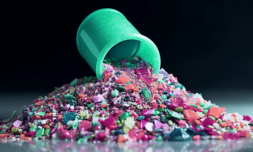Artificial sweeteners – made from sucralose – have been sold as a guilt-free alternative to real sugar, offering maximum flavour with little to no calories involved. New research is uncovering the true cost of this man-made ingredient.
When zero-calorie sweeteners like Splenda first hit the market in 2004, they were met with equal parts enthusiasm and scepticism from consumers and nutritionists alike.
Those looking to sweeten up their morning coffee were delighted to do so without adding extra calories to each serving, while others believed the contents of these small sachets were doing more harm than good, given that they are artificially made.
Almost two decades later, sucralose is not only available in powdered or tablet form, but it is also an additive in many ‘sugar-free’ products, such as diet sodas, diet iced teas, sparkling drinks, sugarless syrups, chewing gum, and more.
Given its prevalence, researchers from two universities in North Carolina teamed up to investigate the health effects of sucralose-6-acetate – a key ingredient in artificial sweeteners. This deep dive has revealed that sceptics were right to be cautious.
Published in the Journal of Toxicology and Environmental Health, the study discovered that sucralose is ‘genotoxic’. This means it is capable of harming genetic information within cells.





















